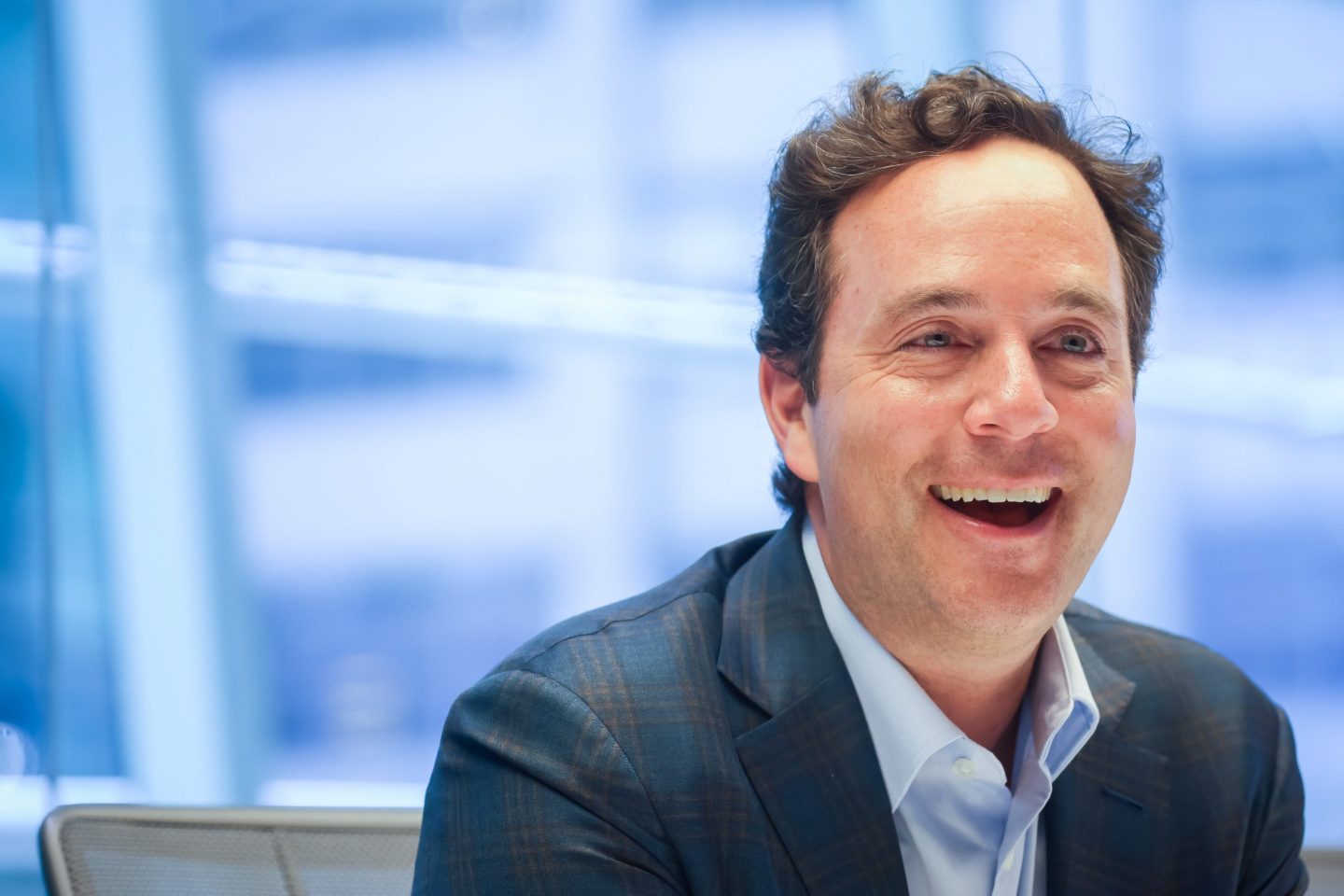- Ralph Lauren CEO Patrice Louvet isn’t afraid to tackle workplace issues head-on. Although he prefers to focus on employees’ strengths when giving feedback, the French-born exec says addressing weaknesses sooner rather than later can help businesses—and careers—thrive.
Being the chief executive of a Fortune 500 company isn’t easy these days, but sometimes a little tough love can go a long way.
For Patrice Louvet, the CEO of Ralph Lauren, that means when it’s time to give negative feedback, you just have to cut to the chase.
“If there’s a big issue, then you’ve got to start with the issue, and go straight on,” Louvet told LinkedIn’s This is Working podcast. “And sometimes people need to be hit by a 2×4 across the forehead, because it doesn’t always register right.”
While major problems like regularly missing crucial deadlines may require a stern hand, the 60-year-old said that he handles smaller issues that aren’t overly disruptive, like being unorganized, by focusing on the worker’s strengths before laying it on thick.
“Provide the feedback through the lens that these are opportunities for development,” Louvet, who’s led the fashion brand since 2017, added—and it’s a lesson he said he learned during his nearly 30-year tenure at Procter & Gamble.
“You have to spend the majority of your time on your strengths,” Louvet said. “So 80% of your time on your strengths, 20% on your opportunities. If you spend all your time on your opportunities, you’re not going to be that effective.”
The best way to provide employee feedback isn’t cut and dry
For workers, reinforcement can be a productivity make-or-break. A recent study found that some 75% of workers wish they felt more valued at work. For Gen Z, in particular, who have had a tough time adjusting to the workplace, understanding their skill gaps can help them avoid being on the early chopping block.
However, striking the appropriate balance between positivity and negativity is a challenge for many leaders, with only 14% of Fortune 500 executives admitting their companies know who the high and low performers are. Some leaders have, in turn, opted for unique approaches to letting their subordinates know their views on their work.
Read more from Fortune
For billionaire Changpeng Zhao, former CEO of the world’s largest crypto exchange, Binance, that’s “whenever and wherever the thought comes up.”
“I in fact prefer to give feedback in large groups, so that other people can learn too and I don’t have to repeat myself many times,” Zhao wrote in a blog post in 2022. “Many people told me they were shocked the first few times when receiving feedback like that, but got used to it eventually.”
Boeing’s CEO, Kelly Ortberg, also took a blunt approach, reportedly telling employees to stop complaining and focus on beating Airbus.
“Don’t sit at the water cooler and bitch about people,” Ortberg told his colleagues, according to a meeting recording obtained by The Wall Street Journal. “Let’s focus on the task at hand.”
At chipmaker Advanced Micro Devices (AMD), workers may even receive feedback from CEO Lisa Su after midnight.
“I don’t believe leaders are born, Su told Time. “I believe leaders are trained.”












